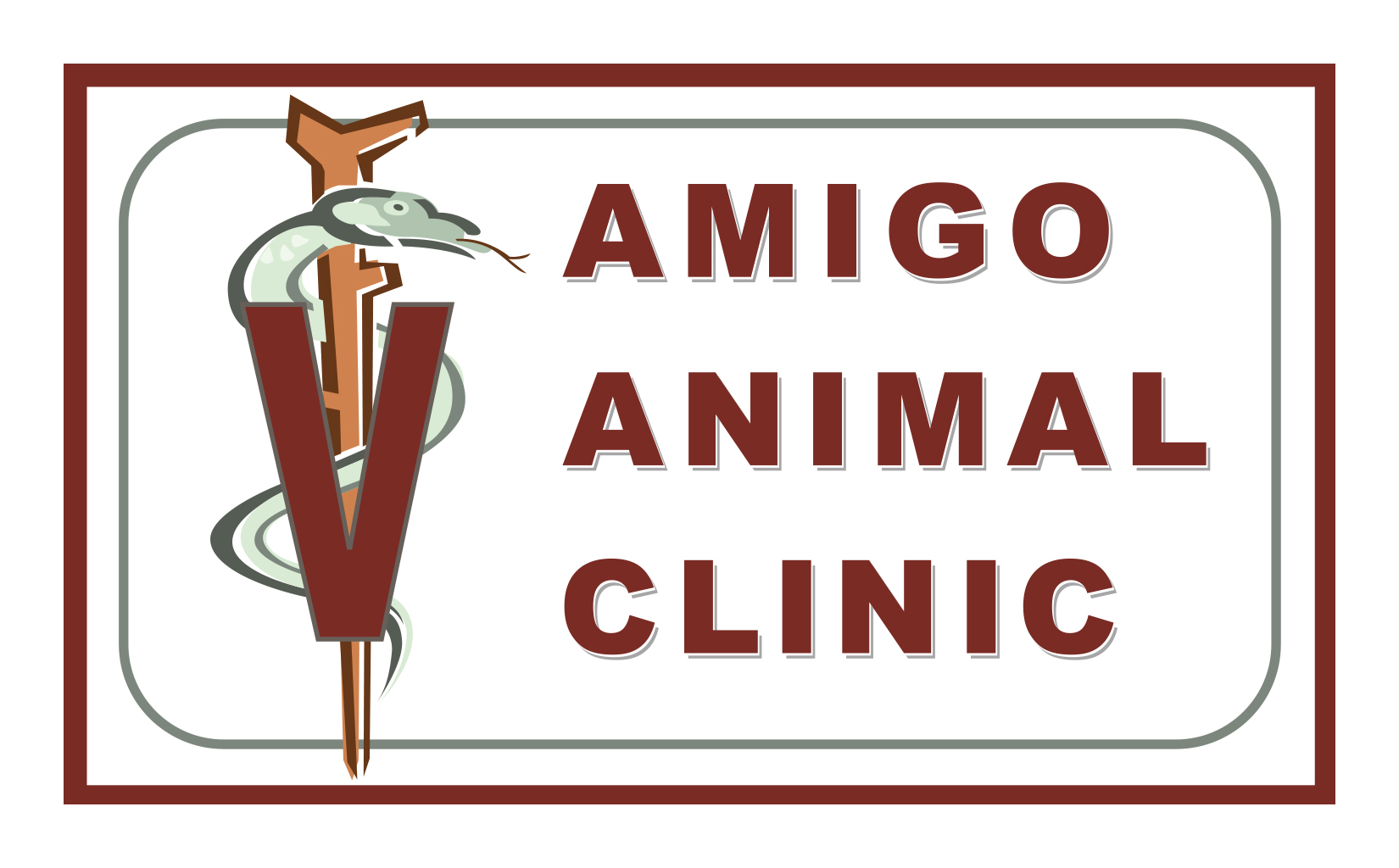https://www.facebook.com/AmigoAnimalClinic/videos/469599353860117/
We’re here with some tips to keep your furry loved ones safe during freezing weather.
Small pets, thin haired pets, older arthritic pets and sick pets all need to be indoors when the temperatures drop. If it’s too cold for you it’s too cold for them. Larger breed dogs with thick coats may tolerate the cold longer but even they will need to come inside.
If they must be outside they should have a fully enclosed space to go into to. The space should have warm bedding off of the cold ground and it should protect them from the wind and moisture.
Don’t forget about your outdoor cats. If you provide them a cozy spot they are less likely to seek the dangerous warmth off your cars engine. Horses and livestock are adapted to wintry weather but even they should have access to shelter that provides a windbreak and over head cover.
Clean, unfrozen water must always be available.
Dangers of Leaving Animals in Freezing Weather
Animals exposed to cold, dry air, rain, or snow can suffer from chapped paws and itchy, flaking skin. However, there can be seriously dangerous effects of freezing weather on animals.
Animals left out in the cold without proper protection can suffer hypothermia, especially when temperatures dip below 20 degrees F. Here are some signs your pet needs to be brought inside from the cold: shivering, holding up a paw, anxiety, searching for warmth, whining, weakness, slowing down, and lack of mental alertness.
Another danger to animals is ice-melting agents and anti freeze which is extremely toxic and can be fatal to pets. An animal may walk on an area that has been treated with toxic ice-melting agents, particularly magnesium chloride. If they then lick their paws they will ingest the toxic agents. Both dogs and cats are attracted to anti-freeze. If they ingest anti-freeze it is an immediate medical emergency. Anti Freeze can cause kidney failure and death in pets even if as little as 1 teaspoon is consumed.
More TIPS on Protecting Your Animals in Freezing Weather
Watch for Hypothermia.
Stay watchful of your pets when taking them outside for exercise. When temperatures are below 45 degrees F be alert to signs of hypothermia. Use winter gear if you can when taking your pets out for exercise, especially dogs with thin coats, older dogs and smaller dogs. Bring a towel on long walks to clean off stinging, irritated paws. After each walk, wash and dry your pet’s feet and stomach to remove ice, salt and chemicals. Check for cracks in paw pads or redness between toes. As a note, never shave your dog down to the skin in winter. A simple trim would be ok.
Protect Paw Pads.
You can massage petroleum jelly or other paw protectants into paw pads before going outside to protect them from salt and chemical agents. Booties are even better coverage and also prevent sand and salt from getting lodged between bare toes and causing irritation. There are pet friendly ice-melters you can find on-line.
Keep Your Pets Safe from Antifreeze.
Antifreeze that contains propylene glycol is safer for pets than antifreeze with ethylene glycol. In any case, thoroughly clean up any spills from your vehicle. Be sure to check your car radiator regularly and repair leaks right away. Don’t let your pet roam unsupervised where they may have access to antifreeze.
Protect Feral and Outdoor Cats.
If you have feral or outdoor cats in your area they need protection from the freezing weather. Also it is vital they have access to water that won’t freeze up. There are simple feral shelters that can be built to protect them from freezing weather. And there are ways to stop their water from freezing. Cats may also crawl under the hood of a car or sleep on the tires to seek warmth. Before you start your car, bang on the hood to chase them out. You can also take a quick peek under the hood just to be safe.
Protect Your Livestock from Freezing.
Just as your pets can suffer from hypothermia and frost bite so can your livestock. Of course you won’t be bringing them into your home but the number one priority is shelter. Here is a link to find out more on how to keep your livestock from freezing in the harshest of winters.
In conclusion, our job as your veterinary clinic here in Grand Junction, Colorado is to provide the highest level of pet care to your four-legged family so you and your pets can enjoy the quality of life you want to have. Help us by keeping your animals safe during this winter.
Here’s to a wonderful new year and 2019!
What's Next
Call us or schedule an appointment online.
Meet with a doctor for an initial exam.
Put a plan together for your pet.

